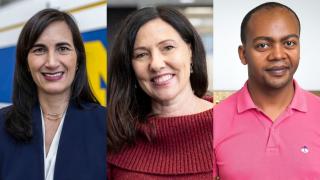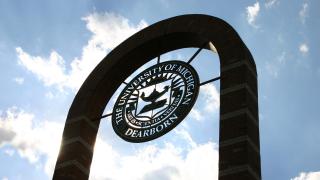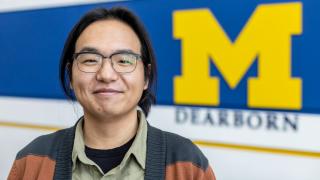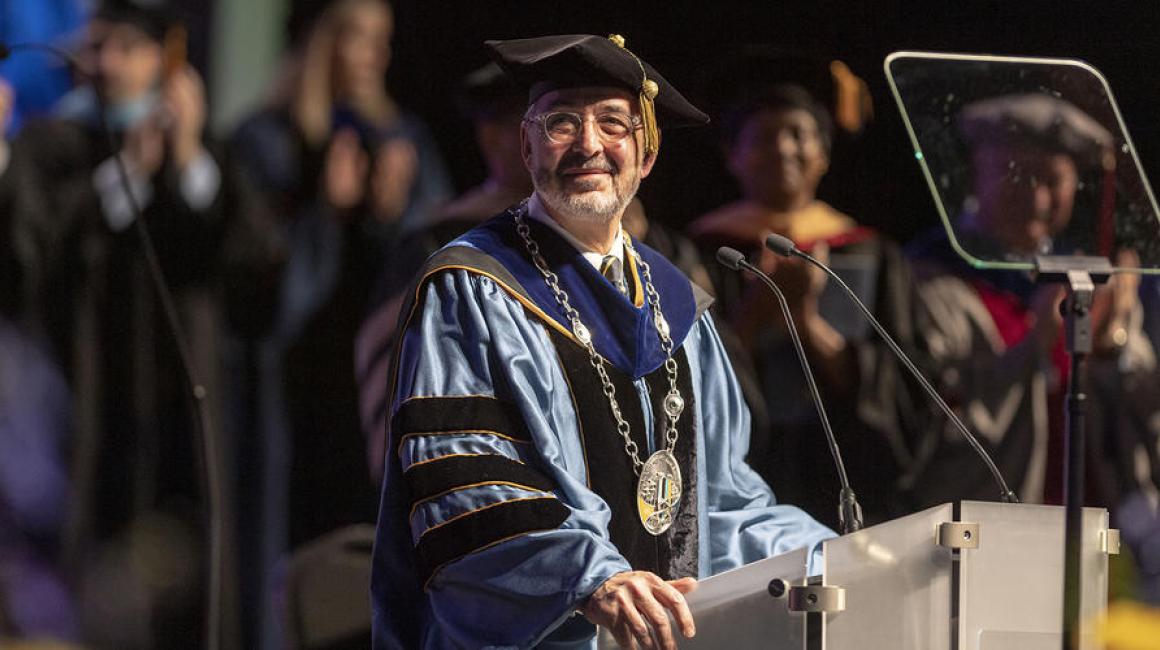
This article was originally published on April 13, 2019.
The morning’s cloudy skies and intermittent spring rains didn’t seem to dampen the excitement Friday, as campus celebrated the official installation of Domenico Grasso as the university's sixth chancellor. Since beginning his tenure in August 2018, Grasso has continually challenged the campus to think big when charting out the vision for the university's next few decades. And in his formal remarks to the audience of about 600, he struck a similarly bold tone — arguing for UM-Dearborn to secure its status as a gateway of opportunity for all people.
Grasso has a natural authority on the topic. As a first-generation American and first-generation college student, his personal story mirrors that of thousands of UM-Dearborn students. And throughout his professional life, access to education has been a defining theme. His mentor and the day’s keynote speaker, Prairie View A&M University President Ruth Simmons, offered a powerful case in point — sharing a story of a time when Grasso turned down a tenured professorship at Columbia to start Smith College’s engineering program, the first at a women’s college in the U.S.
“He has demonstrated time and time again that he’s motivated by what some may perceive as old-fashioned values: He tries to do what is good and just,” Simmons said, before directing her comments personally to Grasso. “Domenico, you have been a bulwark against exclusion and elitism. Continue that work here with an understanding that you offer a wonderful example to the rest of the world.”
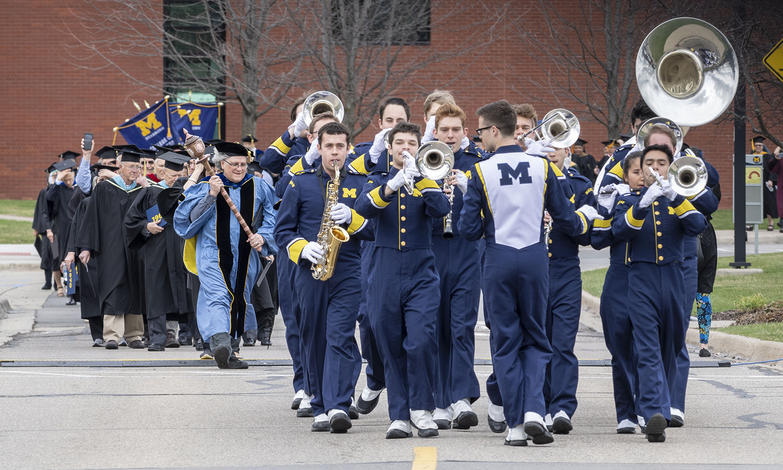
In his own speech, Grasso noted that such values have deep roots at the University of Michigan. A fan of history, he reminded the audience that creating an “uncommon education for the common man” was one of the organizing principles of the University of Michigan when it was founded in the 19th century. And as larger public universities gradually became more selective and research-driven, it was smaller, regional campuses like UM-Dearborn that became the torchbearers of that original working class-focused mission. Indeed, Grasso said, “serving the common good has been part of the DNA of the University of Michigan-Dearborn from its birth.”
But Grasso also was candid about the challenges that lie ahead. Widening economic inequality, the rising cost of higher education, and a crisis of faith in educational institutions are among the forces now colliding to threaten universities’ ability to reach all Americans.
“This has been the compelling narrative of our United States: that neither lineage nor wealth are necessary determinants of success,” Grasso said. “Alarmingly, we now find ourselves in an era where wealth disparity is at an all-time high and where the role of the common individual is increasingly marginalized and threatened. To be sure, we cannot allow this marginalization to go unchecked. As a society, we can ill-afford not to capitalize on the diverse wisdom, creativity and capacity of the vast majority of our population.”
Related: Read Chancellor Grasso's entire inauguration speech.
To avoid that future, Grasso said regional universities like UM-Dearborn will have to muster their own creativity to grow their reach and reinvent how they serve their communities. Citing another lesson he learned from Simmons — that “there is nothing worse than a leader who lacks ambition” — he closed by laying out some intentionally ambitious goals. Some, he said, like pushing graduation and retention rates to the 70 percent mark, may take longer than a single term as chancellor. Others, like introducing stronger non-academic student supports, leveraging educational technology, and even fundamentally reexamining our educational model, are part of a strategic planning process that’s already underway.
“Without doubt, there remain many exciting and revolutionary advances to which we will offer witness in our lives,” Grasso said in closing. “Equally certain is that the challenges and opportunities we face will require our collective genius, imagination and resourcefulness. So let us begin this journey together, knowing that — through our collective action, creativity and determined effort — we can make a profound difference.”

